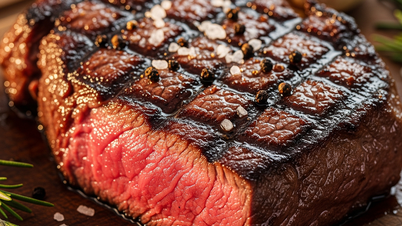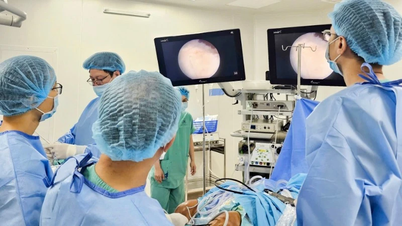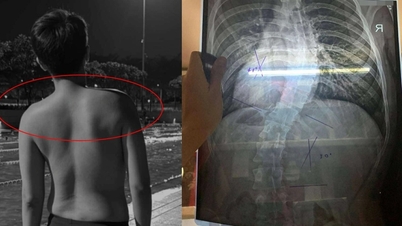What does science discover about dinner time?
We wanted to examine why eating late at night increases the risk of obesity, said lead author Dr Frank AJL Scheer, of BWH.
Research defines an early dinner as 3-4 hours before bedtime, in line with the body's circadian rhythm. Eating at this time allows the body to digest food, process nutrients efficiently, facilitate recovery processes and sleep better.

It is best to have dinner about 2 - 3 hours before bedtime.
Results found that people who ate dinner early had lower blood sugar levels, better fat burning ability, better sleep quality and higher energy levels.
Conversely, eating dinner late leads to feeling hungrier, burning calories more slowly and increasing fat storage, increasing the risk of diabetes and cardiovascular disease.
Another study published in the medical journal Obesity Reviews evaluated nine trials and concluded that eating dinner early resulted in significantly greater weight loss. Additionally, insulin resistance, fasting blood sugar, and LDL cholesterol levels all improved, according to The Healthy .

Eating dinner early helps you lose weight better than eating late
These findings have major implications for people with diabetes, thyroid disease, polycystic ovary syndrome and cardiovascular disorders.
Adjust dinner times to fit your schedule
Since everyone's habits are different, the exact time of dinner can vary from person to person.
However, Dr. Wendy Bazilian, a nutritionist at the Bazilian Clinic, Loma Linda University (USA), recommends that it is best to eat dinner about 2-3 hours before bedtime. This ensures the body has enough time to digest food, helping the body rest and recover well while sleeping, according to The Healthy .
Source link


![[Photo] General Secretary To Lam receives US Ambassador to Vietnam Marc Knapper](https://vphoto.vietnam.vn/thumb/1200x675/vietnam/resource/IMAGE/2025/9/29/c8fd0761aa184da7814aee57d87c49b3)
![[Photo] Solemn opening of the 12th Military Party Congress for the 2025-2030 term](https://vphoto.vietnam.vn/thumb/1200x675/vietnam/resource/IMAGE/2025/9/30/2cd383b3130d41a1a4b5ace0d5eb989d)


![[Photo] The 1st Congress of Phu Tho Provincial Party Committee, term 2025-2030](https://vphoto.vietnam.vn/thumb/1200x675/vietnam/resource/IMAGE/2025/9/30/1507da06216649bba8a1ce6251816820)
![[Photo] General Secretary To Lam, Secretary of the Central Military Commission attends the 12th Party Congress of the Army](https://vphoto.vietnam.vn/thumb/1200x675/vietnam/resource/IMAGE/2025/9/30/9b63aaa37ddb472ead84e3870a8ae825)

























![[Photo] General Secretary To Lam attends the ceremony to celebrate the 80th anniversary of the post and telecommunications sector and the 66th anniversary of the science and technology sector.](https://vphoto.vietnam.vn/thumb/1200x675/vietnam/resource/IMAGE/2025/9/29/8e86b39b8fe44121a2b14a031f4cef46)































































Comment (0)